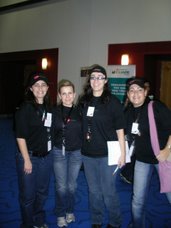LONDON, ENGLAND: An unusual clinical trial has given new hope to children and young people with thalassaemia major, a rare genetic disease that is relatively common in Mediterranean countries and the Middle East. Thalassaemia major, a form of anaemia, kills 50 percent of patients by the age of 35, most due to heart failure. UK and Italian researchers have now shown that adding the oral iron chelator deferiprone to standard chelation with deferoxamine strips iron from the heart more effectively than deferoxamine alone. Their results will be published in Circulation, a journal of the American Heart Association, on 10 April 2007.
The randomised, controlled trial – one of the few such clinical trials in this rare disease – involved driving a mobile cardiovascular magnetic resonance (CMR) scanner out to Sardinia from London three times.
"It was difficult to measure heart iron until recently, making it very difficult to do gold-standard randomised trials of treatment in the heart," said the study’s lead researcher Prof. Dudley Pennell of the Royal Brompton & Harefield NHS Trust and Imperial College, London. "In this trial, we brought modern technology together with a large patient base in Italy, where thalassaemia is very common."
The researchers assessed heart iron levels with myocardial T2*, a CMR relaxation parameter, in 65 patients from 12 thalassaemia treatment centres in Sardinia, a region of Italy. Patients assigned to combined treatment with deferoxamine plus deferiprone had significantly lower levels of heart iron after one year than patients on deferoxamine alone.
"This study clearly shows that if you have a problem with the heart in thalassaemia major patients, whatever you do with deferoxamine, these patients should also be on deferiprone," said Pennell.
Epidemiological studies in Italy and the U.K. have shown that deferiprone appears to reduce the death rate from cardiac disease dramatically. "Iron overload in the heart is a major cause of death, and deferiprone is very effective at getting iron out of the heart. Our clinical trial data now explain the epidemiological data," said Pennell.
The study also showed for the first time that deferiprone significantly improved endothelial function. Endothelial dysfunction – a failure of the arteries to respond to changes in blood flow – is a common finding in thalassaemia major patients and is a major contributing factor to heart failure over the long term. The authors speculated that deferiprone could have this effect on the artery walls directly, by removing iron, or through an antioxidant effect.
Thalassaemia patients have a lifelong dependence on blood transfusions, leading to damaging iron accumulation in the tissues. Deferoxamine has been used for iron chelation since the late 1960s, but patients find the treatment difficult, since it involves subcutaneous injection for 8 hours, five nights per week. Furthermore, although deferoxamine prolongs life, about half of all patients still die before the age of 35 – about 70% of them due to heart failure from iron accumulation in the myocardium. A growing body of data suggests that deferiprone, the first oral iron chelator, might be more effective than deferoxamine at removing iron from the heart and improving survival in patients with thalassaemia major.
/ENDS
Research paper
The research paper entitled "A randomized, placebo-controlled, double-blind trial of the effect of combined therapy with deferoxamine and deferiprone on myocardial iron in thalassemia major using cardiovascular magnetic resonance" will be published on Tuesday, 10 April 2007 in Circulation, a journal of the American Heart Association. The lead author is Professor Dudley Pennell of Royal Brompton & Harefield NHS Trust and Imperial College.
Researchers acknowledge funding contributions by CORDA, Royal Brompton & Harefield Hospital Charitable Funds, the Cooley’s Anemia Foundation, Apotex, the UK Thalassaemia Society, and the University College London Special Trustees Charity.
Royal Brompton & Harefield NHS Trust
Royal Brompton & Harefield NHS Trust is one of the largest centres for the treatment and diagnosis of cardiac disease in Europe and a leading centre in innovative developments in cardiology.
For more information contact:
Rachel Hughes
Media Relations Manager
Royal Brompton & Harefield NHS Trust
London, UK
Phone: + 44 (0) 20 7351 8672
Mobile: +44 (0) 7866 536 345
Email: r.hughes2@rbht.nhs.uk





